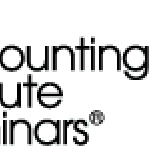- Industry: Accounting
- Number of terms: 7464
- Number of blossaries: 0
- Company Profile:
in audit work papers are footnotes represented by a symbol instead of by a number. They indicate procedures that have been carried out on specific items in the work papers.
Industry:Accounting
Income before interest and taxes divided by interest expense.
Industry:Accounting
The maximum rate of deviation from an internal control that will allow the auditor to place the planned reliance on that control.
Industry:Accounting
When planning a sample for a substantive test of details, the auditor considers how much monetary misstatement may exist without causing the financial statements to be materially misstated. This maximum misstatement is called tolerable misstatement for the sample.
Industry:Accounting
The officer who controls the entity's funds. The treasurer normally signs checks and is responsible for cash management.
Industry:Accounting
is stock of the corporation that has been issued and later reacquired. It is not an asset. It is a reduction of stockholders' equity. Treasury stock can be recorded at either its cost or its par value.
Industry:Accounting
An analysis of the change in something over time. Analytical procedures, which compare financial statement ratios of different years, are an example of trend analysis.
Industry:Accounting
A statement of open debit and credit accounts in a ledger to test their equality.
Industry:Accounting
Inventory turnover is a measure of the time from receipt of inventory to its sale. It is found by dividing cost of sales by average inventory. Receivables turnover is a measure of the time it takes to collect receivables. It is found by dividing net credit sales by average net receivables. Employee turnover is the rate at which new employees replace old employees.
Industry:Accounting
